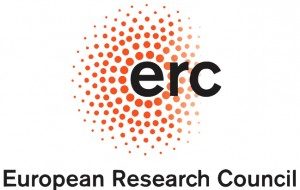CRISPR-Cas systems are the key adaptive immune systems of Prokaryotes and a current hot topic of research in biotechnology. While the canonical view of the organization of a CRISPR-Cas system is the association of one CRISPR with one cluster of cas genes, several studies reported more complex loci with several CRISPRs or/and cas clusters. Here, we quantify and characterise these cases, to understand why there are such non-canonical organizations and the role they may play in prokaryotic immunity. We analysed a very large number of genomes where we identified thousands of CRISPR arrays and clusters of cas genes. CRISPRs are not just much more abundant than cas clusters, they are often encoded either far from the latter or in genomes lacking cas genes (40% of all CRISPR). This led us to integrate the analysis of the two types of elements, for which there is very little data in the literature.
Surprisingly, among the genomes carrying cas clusters, a fourth carried more than one cluster. This allowed us to identify for the first time statistically significant associations between different subtypes of systems. Some of these were negative and suggested negative interactions between systems, whereas a majority was positive and suggested positive epistatic interaction between systems. Intriguingly, we observed that many of the latter corresponded to cas clusters that regrouped in a single locus in the genome, where one cluster provides a common function of adaptation leading to identical CRISPRs and the different clusters provide diverse immune (interference) responses.
To understand the relations between CRISPR and cas clusters we typed the CRISPRs. This allowed to investigate the associations between CRISPRs encoded in mobile genetic elements (plasmids and phages) and the CRISPR-Cas systems of the bacterial host. We found that many plasmids encode CRISPRs without a cognate cas cluster and we show that these CRISPRs are more frequently than expected compatible with the cas clusters encoded in the host chromosome. This suggests that plasmids can use the host cas clusters to express their own CRISPR effectors, thus effectively manipulating the host immunity. The acquisition of CRISPR-containing mobile elements also explains why so many chromosomes have multiple scattered CRISPRs.
These findings challenge the canonical view of the organization of CRISPR-Cas systems, open new research avenues by providing new methods to type CRISPRs, and suggest that systems can combine and co-evolve to provide complex immune responses in Prokaryotes.
Published in Nucleic Acids Research.






